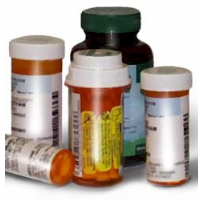One-Fourth of California Foster Care Kids Are on Psych Meds

In 1999, California state lawmakers required juvenile court approval before psychiatric prescription drugs could be given to kids in foster care, with a 180-day mandatory review.
So, how is that working?
The San Jose Mercury News reported last week that one-fourth of the state’s 60,000 foster kids are receiving the powerful medications, about three and a half times more than children in general nationally. More than half of the kids in group homes were authorized to get the drugs, and those who refuse are often disciplined.
Kids as young as 5 have been prescribed psychotropic drugs. The Mercury News said its review of data indicated that, on average, 275 of these young kids were medicated each year during the past decade.
Psychotropic drugs can help people who have suffered trauma, and it’s fair to say foster kids have often been through more than others. But the drugs, such as antidepressants and antipsychotics, can have long-term health consequences, including diabetes, tics, seizures, lethargy and obesity. Prozac, Lithium, Ritalin, Adderall, Paxil and Zoloft are not for everyone.
The report found that more money is spent on psych drugs than any other type of medication and doctors are prescribing multiple medications at one time with greater frequency. Nearly 60% of the kids given the psych meds were getting antipsychotics. They are the most expensive and dangerous drugs, and are used to treat schizophrenia, bipolar disorder and autism with irritability.
States have been on notice that drugging foster home kids is a real problem since at least 2011 when the U.S. Government Accountability Office (GAO) published a report (pdf) about the widespread improper use and overuse of the drugs. The report concluded that the states would benefit from guidelines from the federal government. A follow-up study in May of this year found that kids were still being overmedicated and the states could benefit from additional federal guidance (pdf).
The newspaper conducted its study based on limited data it reluctantly received from the state Department of Health Care Services (DHCS). The data only covered foster kids covered by Medi-Cal, the state version of low-income Medicaid, but many counties that administer foster care now use managed health care plans instead. So, around 38% of kids in foster care are not represented.
A Denver Post investigation in April found that foster kids in Colorado were 12 times more likely to receive antipsychotic drugs than other kids covered by Medicaid. The report detailed the high-powered efforts by drug companies to market their most expensive, and dangerous, drugs to kids in general and foster kids in particular.
–Ken Broder
To Learn More:
Drugging Our Kids (by Karen de Sá, San Jose Mercury News)
Lawmakers Call for End to Reckless Prescribing of Psych Meds to California Foster Kids (by Karen de Sá, San Jose Mercury News)
New Study Shows U.S. Government Fails to Oversee Treatment of Foster Children With Mind-Altering Drugs (by Dr. Mark Abdelmalek, Brinda Adhikari, Sarah Koch, Joseph Diaz and Claire Weinraub, ABC News)
Drug Firms Have Used Dangerous Tactics to Drive Sales to Treat Kids (by Christopher N. Osher and Jennifer Brown, Denver Post)
Foster Children: HHS Guidance Could Help States Improve Oversight of Psychotropic Prescriptions (U.S. Government Accountability Office) (pdf)
- Top Stories
- Controversies
- Where is the Money Going?
- California and the Nation
- Appointments and Resignations
- Unusual News
- Latest News
- California Forbids U.S. Immigration Agents from Pretending to be Police
- California Lawmakers Urged to Strip “Self-Dealing” Tax Board of Its Duties
- Big Oil’s Grip on California
- Santa Cruz Police See Homeland Security Betrayal in Use of Gang Roundup as Cover for Immigration Raid
- Oil Companies Face Deadline to Stop Polluting California Groundwater





